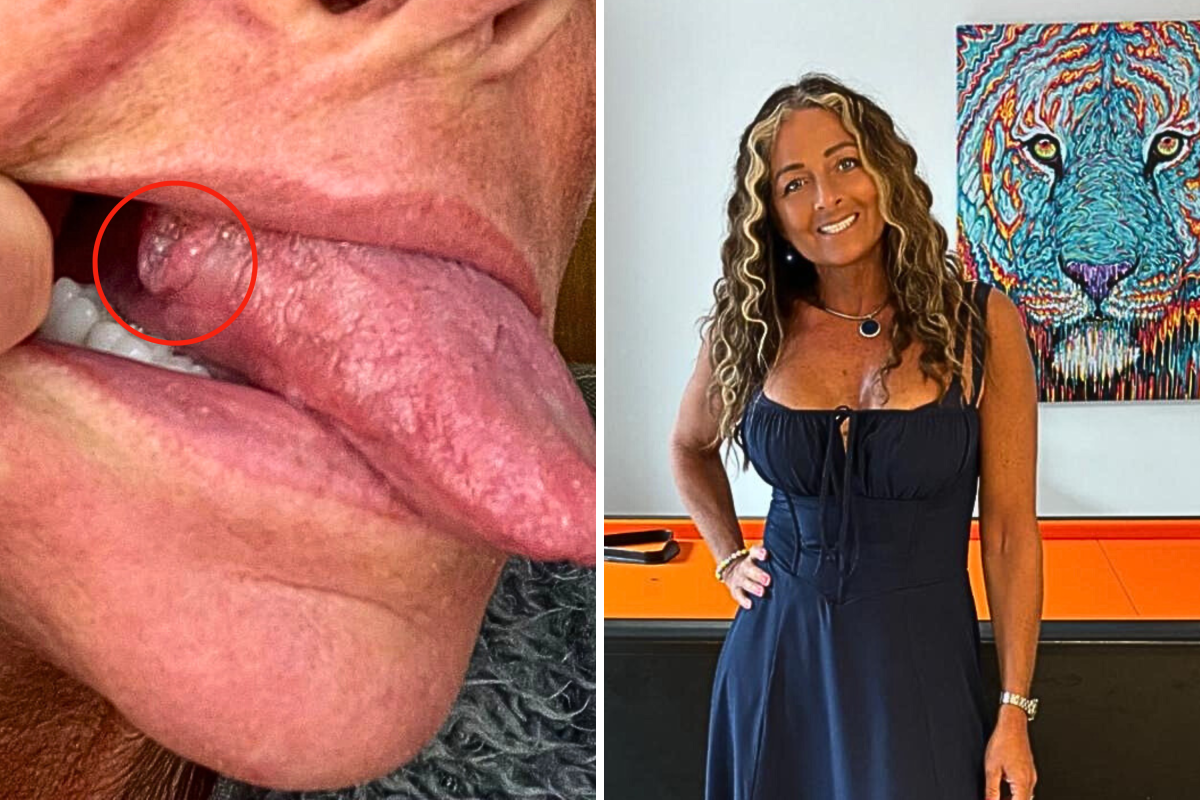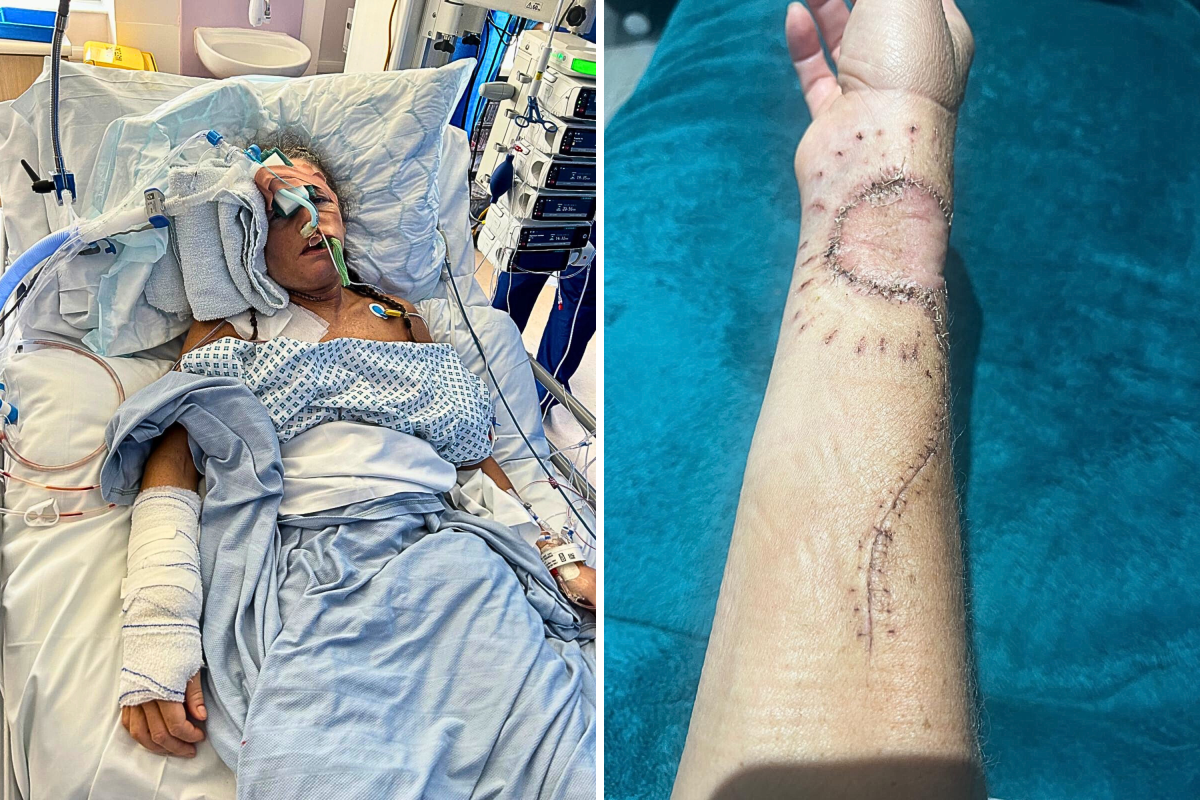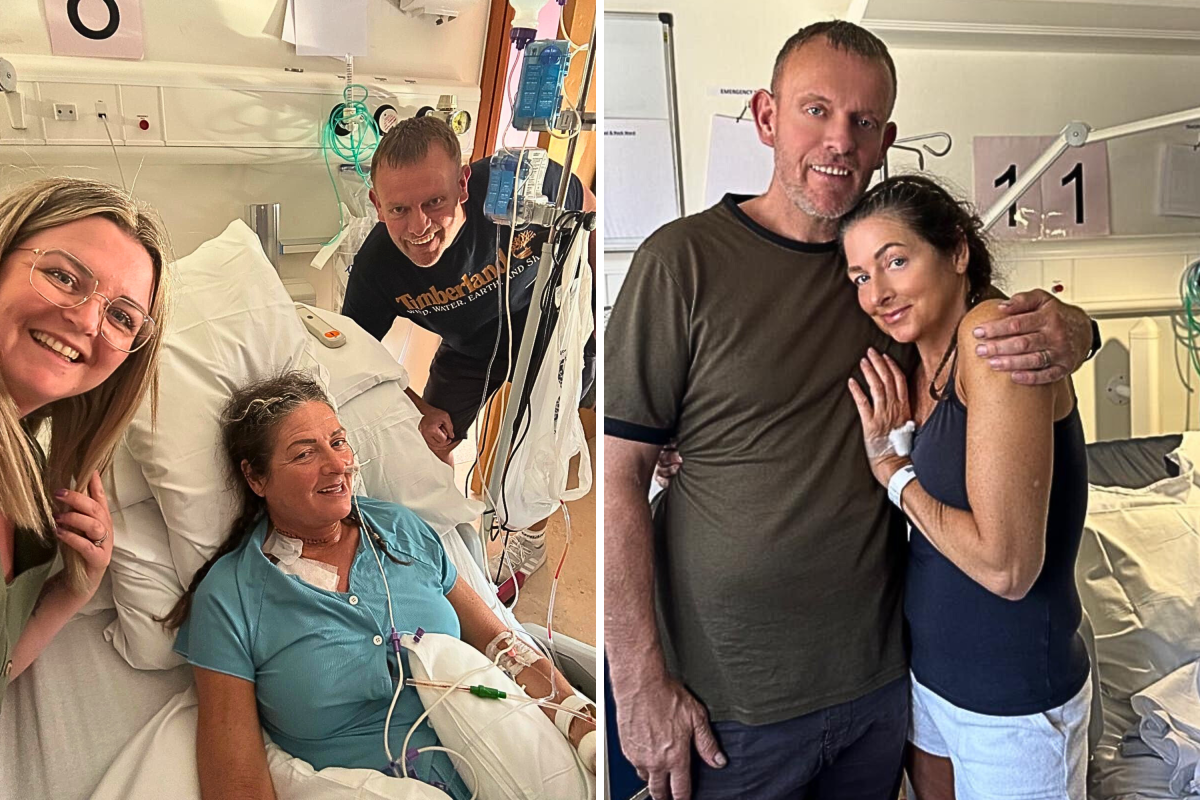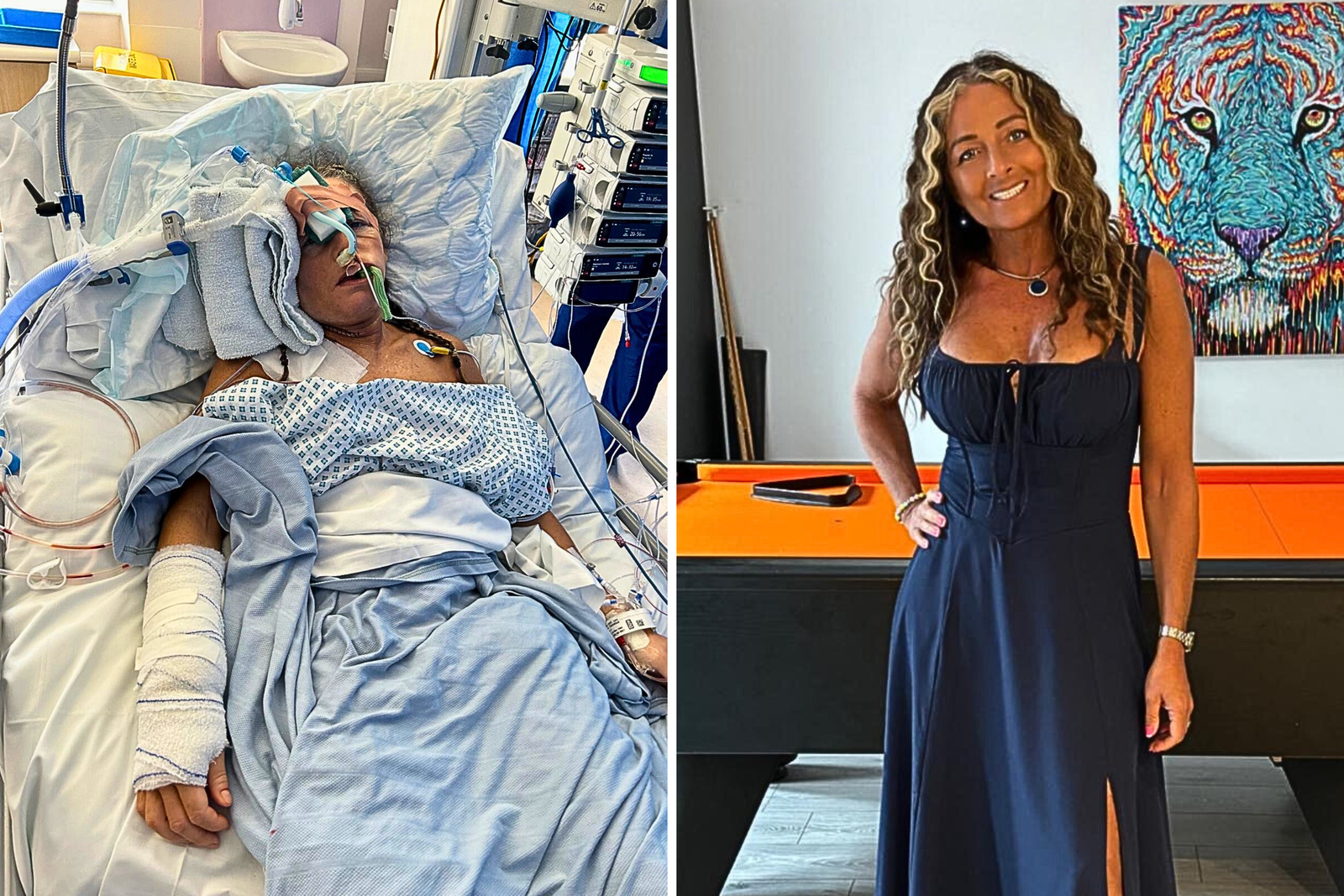Standing by the carousel, awaiting our luggage after an amazing week in Egypt, I decided to catch up on emails. Then, one immediately caught my eye.
My stomach dropped as I handed my phone to my husband, Stu, whose eyes nearly popped out of his head when he saw the dreaded word: cancer. It was a referral following a blood test I’d had the day before we went abroad.
About six weeks earlier, my tongue had felt sore. I initially thought I must have bitten it. But, then, two white patches appeared on the right side, and turned into an ulcer that wouldn’t go away. Still, I didn’t think much of it.
If it weren’t for Stu, I wouldn’t have gone to the doctor. But, as the old saying goes, it’s better to be safe than sorry. They ran a blood test to check for deficiencies before we jetted off, and while we were abroad, my tongue didn’t cause any issues.

Lynn Hunt
I’m not a worrier, so the thought that the ulcer could be something sinister never crossed my mind—until I looked at my phone upon our return to Oxfordshire, England.
One week later, I had a biopsy, but the consultant could tell just by looking—it was cancerous. By that point, it looked like a crater. The following week, I was diagnosed with squamous cell carcinoma (SCC) of the tongue.
I asked the oncologist, “How has this happened?” I didn’t drink alcohol, worked out six days a week, and hadn’t touched a cigarette in over two decades. The oncologist said that cancer doesn’t discriminate—it can happen to anyone.
Six days later, I underwent a grueling 12-hour operation to remove the cancer from my tongue. The surgeons took a chunk of flesh and a vein from my arm to reconstruct a tongue flap. They also performed a skin graft on my leg to repair my arm. Thirty-eight lymph nodes were removed from my neck to check whether it had spread.
I was out cold and sedated for 26 hours. When I woke up, I was confused and afraid I might never speak again. I was slurring and had a lisp. I had to learn how to swallow and speak again before I was discharged a week later.

Lynn Hunt
The lymph nodes came back clear—which was a massive relief—but the tumor was worse than they initially thought. So, I began 30 rounds of radiotherapy over six weeks.
That’s when I started my TikTok journey, @lynnhunt27. I was inspired by my daughters Stacey, 38, and Josie, 26, who had been watching another woman battling tongue cancer on the platform. Stacey found reassurance in her videos, and I hoped I could do the same for someone else.

Lynn Hunt
In many ways, the online community has helped support me through some of my darkest days—like when doctors found precancerous cells on my tongue 14-months after the first surgery. I spent 24 hours in hospital while they lasered them off. My tongue was black and burned.
Now, more than two years on, I have 11,800 followers and an online family. I regularly update them on my health, and if I don’t post for a few days, they become concerned.
I’ve received messages from strangers thanking me for saving their lives—some had ulcers and were inspired by my story to get checked out.
For me, Stu is my hero—he saved my life by encouraging me to see a doctor. Early detection is key with cancer. I now know that if you notice anything unusual on your tongue—like sores, bumps, or a change in color that lasts more than three weeks—you must seek medical advice.
Catching cancer early can make all the difference. While I’m not officially in remission, the cancer hasn’t returned, and I have checkups every two months.
I feel incredibly lucky to have my family, who’ve been amazing and supportive since the dreaded diagnosis in May 2023. Battling this disease has brought us even closer—it makes you realize just how much you value your loved ones.
